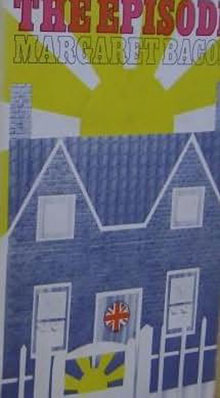The Episode
Description
Chillingdown is a pleasant village in the Home Counties, with some picturesque old cottages and an ancient church whose vicar, the Reverend Gerald Harbottle, has great faith in the virtues of compromise and toleration. He needs to exercise them almost to breaking point in his dealings with the Teas Committee. As there is a good train service to town it is a convenient place for commuters to live. On the outskirts of the village there are some very big houses, like the mansion of Sir Bert Bromley, who once believed in poverty but in the course of his good works inadvertently made a fortune.
It is a typical suburban community, parochial in its interests. Although its menfolk do take enough interest in politics to suffice for the purpose of conversation, Chillingdown is really much more concerned with its own problems than those of the outside world. Yet it is a crisis in a far-away and little known country that disturbs the comfortable world of Chillingdown, creating for some a crisis of conscience and making others reveal themselves more starkly than they would otherwise have done.
For John Randall-Parker, whose mother organizes a great many local activities but has less success in organizing her son, there is a simultaneous personal crisis which necessitates frequent visits to London. The scene moves between London and Chillingdown where the pattern of life is disrupted and the old assumptions suddenly doubted. It seems for a while as if the foreign crisis will act as a catalyst, bringing about deep and lasting change. In the event, however, habit and self-interest prove invincible and life resumes its former comfortable ways. Chillingdown settles back to normal, the cracks covered over and the facade repaired. For, as John Randall-Parker realises, it was only a facade and nothing was ever quite what it seemed.
The book has a fine satirical flavour but the characters are treated with understanding and compassion.
Reviews
A fine satirical flavour emerges from Margaret Bacon’s second book, The Episode, which deals with life in a small and insular Home Counties village.
There is the vicar who has to battle with the ladies of the Teas Committee, the prospective MP, the budding author and a host of other people in the community, typical and parochial in its outlook – until a crisis occurs in the Middle East.
The crisis disturbs the humdrum life of the village and it seems as if it will act as a catalyst, bringing the sleeping village out of its self-interest. But habit has a stronger hold and soon life returns to its original level.
The book is written with humour and an understanding of people who live in such communities on the outskirts of London.
Western Morning News
Pleasant satire on girls’ school staff, fashionable hairdresser, suburban family life, charity garden party, velvet-clad young London designer, etc. Bisqit and its sheik strike a deeper note. Brenda, rather sweet though a nitwit, Patience, a darling. “It could not be right to empty the church just over a matter of principle,” thinks the vicar. Ha!
Phyllis Bentley in The Yorkshire Post
The main point is delineation of character, which is done through admirable satirical dialogue. Beneath the surface runs a keen compassion and a masterly presentation of a tragic and touching love affair.
Broadcast review, Johannesburg
This quite delightful book is set in about 1960 in London and Surrey. Beautifully written, wrily sardonic, it has an underlying strain of deep feeling and humanity.
The Conservative government is deciding to go to war for thinly-veiled economic reasons. How the people act and react and how their daily lives are affected in times of crisis is the theme of the book.
A very real and tender love story threads its way throughout. The characterisations of people like the local MP, the Head of the girls’ school, the stupid ex-captain longing for another war, are all perfect.
The deliciously funny account of Open Day at the girls’ school, and of Miss Harrington’s ineptly getting her girls off to France on an outing had me laughing aloud on a bus.
I had not heard of Miss Bacon before but I shall look out for her books in future. Imagine a completely believable modern novel entirely devoid of four-letter words and not a single seduction!
The Irish Times
